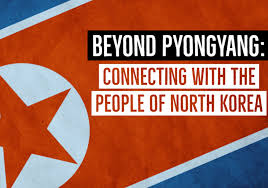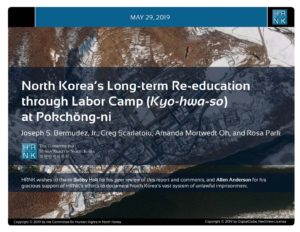America must break the silence that the censors in Seoul and Pyongyang seek to enforce, write @freekorea_us and @SungYoonLee1 https://t.co/dEFPNp7UPe via @WSJ
— Democracy Digest (@demdigest) September 10, 2020
South Korea is the second-greatest threat to human rights on the Korean Peninsula, argue and President Moon Jae-in ordered a crackdown in July on activists protesting North Korean dictator Kim Jong Un’s crimes against humanity. South Korea’s national police have undertaken politically driven audits of more than 100 human-rights organizations, and the president is pushing for new laws to criminalize speech, they write for The Wall Street Journal:
 Mr. Moon has staked his legacy on improving relations with Pyongyang, but in practice that’s meant taking cues from its vicious dictatorship. On June 4, Kim Jong Un’s sister Kim Yo Jong denounced South Koreans who use balloons to send leaflets across the demilitarized zone. Calling them “human scum” and “mongrel dogs,” Ms. Kim demanded that Seoul “make a law to stop the farce.” Hours later, Seoul said it would ban the leaflet campaigns. Police raided activists’ offices, and the Unification Ministry, which oversees relations with North Korea, revoked the operating licenses of two organizations.
Mr. Moon has staked his legacy on improving relations with Pyongyang, but in practice that’s meant taking cues from its vicious dictatorship. On June 4, Kim Jong Un’s sister Kim Yo Jong denounced South Koreans who use balloons to send leaflets across the demilitarized zone. Calling them “human scum” and “mongrel dogs,” Ms. Kim demanded that Seoul “make a law to stop the farce.” Hours later, Seoul said it would ban the leaflet campaigns. Police raided activists’ offices, and the Unification Ministry, which oversees relations with North Korea, revoked the operating licenses of two organizations.
Any new administration would have to apply pressure using economic, diplomatic, and liaison channels in countries in Africa and Southeast Asia where North Korea continues to operate, selling weapons and conducting illicit trade, analyst Andrea R. Mihailescu writes for Foreign Policy (HT:FDD) . The goal would be to squeeze North Korea out and cut it off from earnings through criminal activities. The message must be clear to those who turn a blind eye: They, too, will increasingly face serious sanctions.
 As North Korea begins to ease its protective measures against the coronavirus pandemic, the country faces the massive challenge of rebounding from not only economic standstill in many parts of the country, but also economic sanctions that continue to weigh on the Kim regime, Benjamin Fu writes in Juche in the Era of a Pandemic, an article for the Committee for Human Rights in North Korea (HRNK). As internal sources indicate, the economic situation has become increasingly dire, and fast. Equivalently, the regime’s introduction of economic reform relevant to juche, North Korea’s principal ideology of self-reliance, is increasingly relevant in the near future. RTWT
As North Korea begins to ease its protective measures against the coronavirus pandemic, the country faces the massive challenge of rebounding from not only economic standstill in many parts of the country, but also economic sanctions that continue to weigh on the Kim regime, Benjamin Fu writes in Juche in the Era of a Pandemic, an article for the Committee for Human Rights in North Korea (HRNK). As internal sources indicate, the economic situation has become increasingly dire, and fast. Equivalently, the regime’s introduction of economic reform relevant to juche, North Korea’s principal ideology of self-reliance, is increasingly relevant in the near future. RTWT







